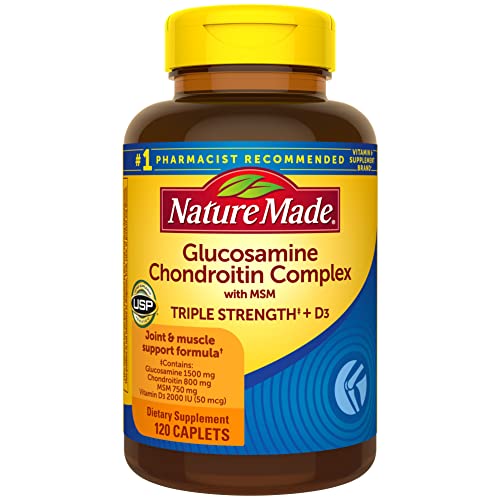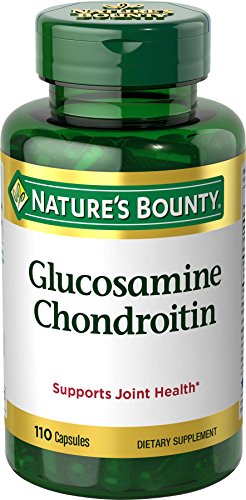Chondroitin for Knee Pain Relief: GAIT Study Insights
Quick Summary: The GAIT study tested chondroitin, glucosamine, and their combo for easing knee pain from osteoarthritis in over 1,500 people. Overall, these supplements didn't work much better than a fake pill (placebo), but the combo showed real promise for folks with moderate-to-severe pain. Celecoxib, a common pain med, beat placebo slightly, with all treatments being safe and causing few side effects.
What The Research Found
This big study looked at whether chondroitin sulfate—a natural compound found in cartilage—and glucosamine could cut knee pain in people with osteoarthritis, a condition where joints wear down over time. Researchers measured success as at least a 20% drop in pain after 24 weeks.
Key results in simple terms:
- Overall group: About 60% of people on placebo felt 20% less pain. Chondroitin alone helped 65% (a small 5% boost, not statistically significant). Glucosamine alone helped 64% (3% boost, not significant). The combo helped 67% (7% boost, close but not quite significant). Celecoxib helped 70% (10% boost, which was significant).
- People with moderate-to-severe pain: This smaller group (about 350 people) saw big differences. The combo worked for 79%—that's 25% better than placebo's 54% (a clear win, statistically speaking). Chondroitin or glucosamine alone didn't stand out here.
- Side effects were rare and mild across the board, like tummy upset, with no major safety red flags.
In short, these supplements aren't a magic fix for everyone, but the chondroitin-glucosamine mix might help if your knee pain is pretty bad.
Study Details
- Who was studied: 1,583 adults (average age 59, 64% women) with knee osteoarthritis and ongoing pain. They split people into mild pain (most of the group) and moderate-to-severe pain groups to see if results varied.
- How long: 24 weeks, or about 6 months—long enough to spot pain changes but not a lifetime test.
- What they took: Chondroitin sulfate at 1,200 mg per day (split into three pills); glucosamine at 1,500 mg per day (one pill); or both together. Comparison groups got celecoxib (200 mg daily, a prescription anti-inflammatory) or placebo pills. Everyone could add up to 4,000 mg of acetaminophen (like Tylenol) for extra pain relief if needed.
The study was double-blind (neither participants nor doctors knew who got what) and ran at multiple U.S. centers for fair results.
What This Means For You
If you're dealing with knee osteoarthritis, this research can guide your choices without overwhelming you. Here's how it applies to everyday life:
- Mild knee pain? Skip the hype—chondroitin or glucosamine likely won't do more than a placebo. Stick to basics like exercise, weight management, or over-the-counter pain relievers.
- Moderate-to-severe pain? The combo of chondroitin and glucosamine could be worth trying, as it helped 8 out of 10 people in that group feel noticeably better. It's safe and available as supplements (check with your doctor first, especially if you have allergies to shellfish, since glucosamine often comes from it).
- Talk to your doctor before starting—these aren't FDA-approved drugs, and celecoxib might be an option if you need quicker relief, though it has heart risks for some.
- Bottom line: Supplements like chondroitin are low-risk, but results vary. Pair them with physical therapy or lifestyle changes for the best shot at less pain and more mobility.
Study Limitations
No study is perfect, and this one has points to watch:
- The strong combo result was from a smaller group, so it needs more research to confirm—it's promising but not ironclad.
- At just 6 months, it doesn't show if benefits last years or help rebuild joints.
- People could use acetaminophen for pain, which might hide some real effects from the treatments.
- Mostly women were studied, so men or other groups might see different outcomes.
- The placebo effect was high (over 60% improved), making it harder to spot small wins from supplements.
Overall, this 2006 study is a solid starting point, but newer research might add more clarity on chondroitin for knee pain. Always consult a healthcare pro for personalized advice.
Technical Analysis Details
Key Findings
The GAIT study found that chondroitin sulfate (1200 mg/day) and glucosamine (1500 mg/day), alone or combined, did not significantly reduce knee pain in the overall cohort of osteoarthritis patients compared to placebo. However, in a pre-specified subgroup of patients with moderate-to-severe baseline pain, the combination therapy showed a statistically significant 24.9 percentage point higher response rate (79.2% vs. 54.3%, P=0.002). Celecoxib (200 mg/day), a prescription NSAID, outperformed placebo (70.1% vs. 60.1%, P=0.008). Adverse events were mild and evenly distributed across groups.
Study Design
This was a multicenter, double-blind, placebo- and celecoxib-controlled randomized clinical trial (RCT) conducted in 2006. A total of 1,583 participants with symptomatic knee osteoarthritis were stratified by pain severity (mild: n=1,229; moderate-to-severe: n=354) and followed for 24 weeks. The study aimed to assess efficacy and safety of glucosamine, chondroitin sulfate, and their combination against placebo and celecoxib.
Dosage & Administration
- Glucosamine: 1,500 mg/day (single capsule).
- Chondroitin sulfate: 1,200 mg/day (three capsules).
- Combination: Both supplements taken together.
- Control groups: Celecoxib (200 mg/day) or placebo.
Supplements were administered orally. Participants could use up to 4,000 mg/day of acetaminophen for breakthrough pain.
Results & Efficacy
- Primary outcome: ≥20% reduction in knee pain at week 24.
- Overall cohort:
- Placebo: 60.1% response rate.
- Glucosamine: +3.9% vs. placebo (P=0.30).
- Chondroitin sulfate: +5.3% vs. placebo (P=0.17).
- Combination: +6.5% vs. placebo (P=0.09).
- Celecoxib: +10.0% vs. placebo (P=0.008).
- Moderate-to-severe subgroup:
- Combination therapy: 79.2% response vs. 54.3% for placebo (P=0.002).
- Statistical significance: Only celecoxib and the combination in the moderate-to-severe subgroup met significance thresholds (P<0.05).
Limitations
- Subgroup analysis: The significant result for combination therapy in moderate-to-severe pain was exploratory, not pre-specified, and may lack power.
- Short duration: 24 weeks may be insufficient to assess long-term efficacy or structural changes in cartilage.
- Rescue medication: Acetaminophen use (allowed in all groups) could mask true treatment effects.
- Population bias: 64% of participants were women, and results may not generalize to men or broader OA populations.
- Placebo response: High placebo response rate (60.1%) may have diluted observed treatment effects.
Clinical Relevance
For individuals with mild knee osteoarthritis, this study suggests chondroitin sulfate and glucosamine offer minimal benefit over placebo. However, those with moderate-to-severe pain might consider combination therapy, as it showed a significant 24.9% absolute improvement vs. placebo in this subgroup. Despite safety being comparable to placebo, the lack of overall efficacy raises questions about routine use. Clinicians should weigh these results against the modest benefits of celecoxib (+10% improvement) and its known cardiovascular risks. Further research is needed to confirm subgroup findings and evaluate long-term outcomes.
Note: This analysis focuses solely on the 2006 GAIT trial (NCT00032890). Other studies may yield differing conclusions.
Original Study Reference
Glucosamine, chondroitin sulfate, and the two in combination for painful knee osteoarthritis.
Source: PubMed
Published: 2006
📄 Read Full Study (PMID: 16495392)




